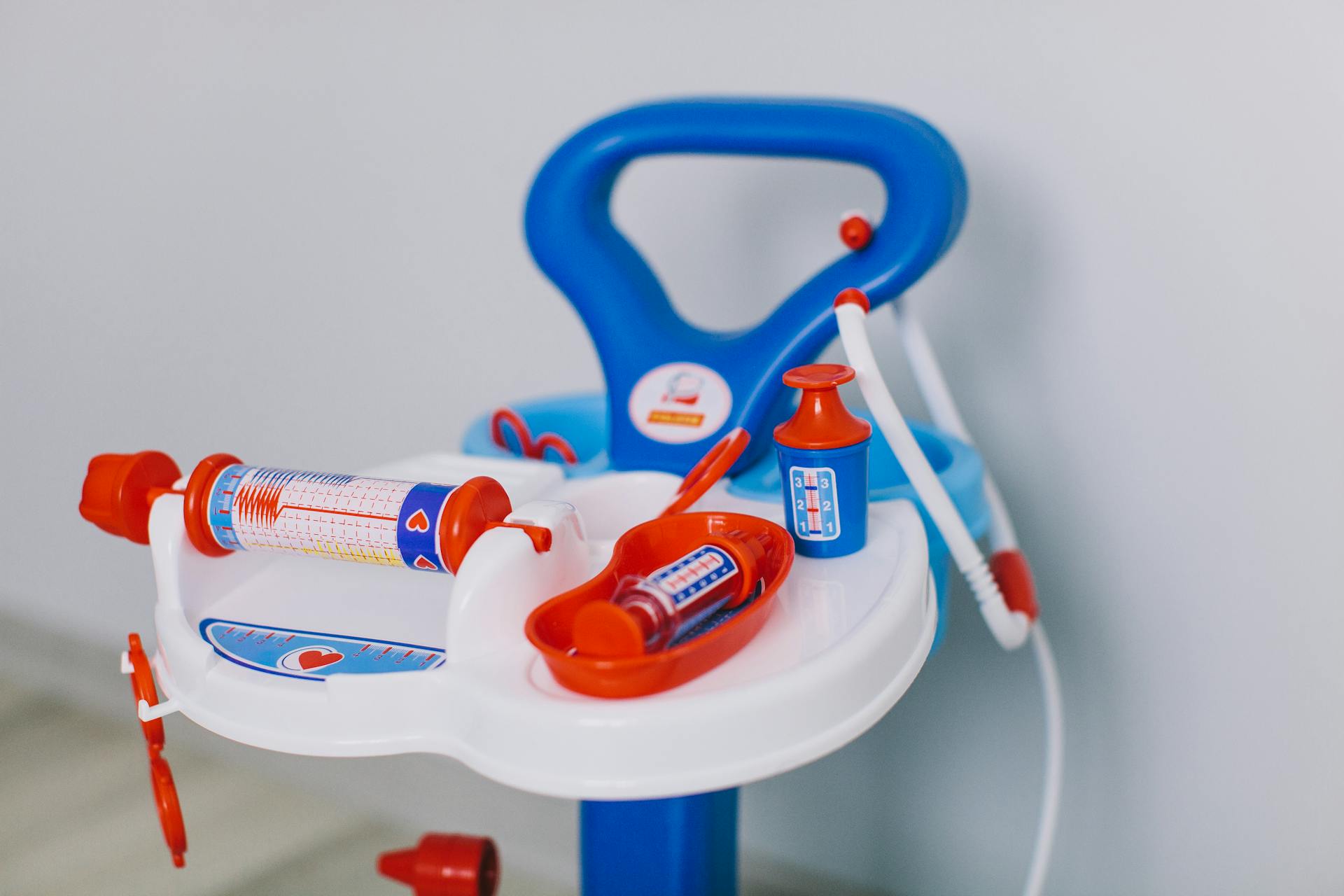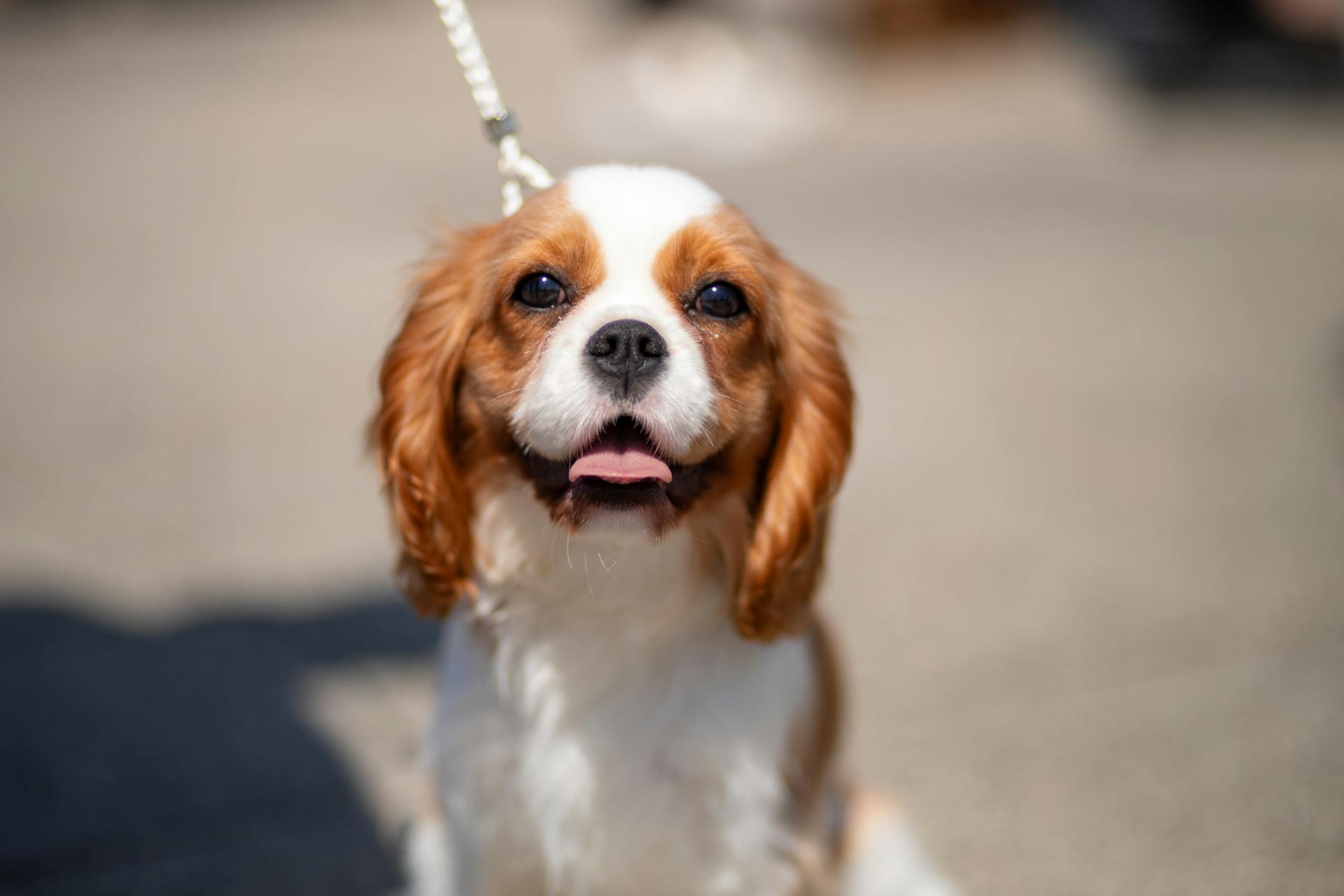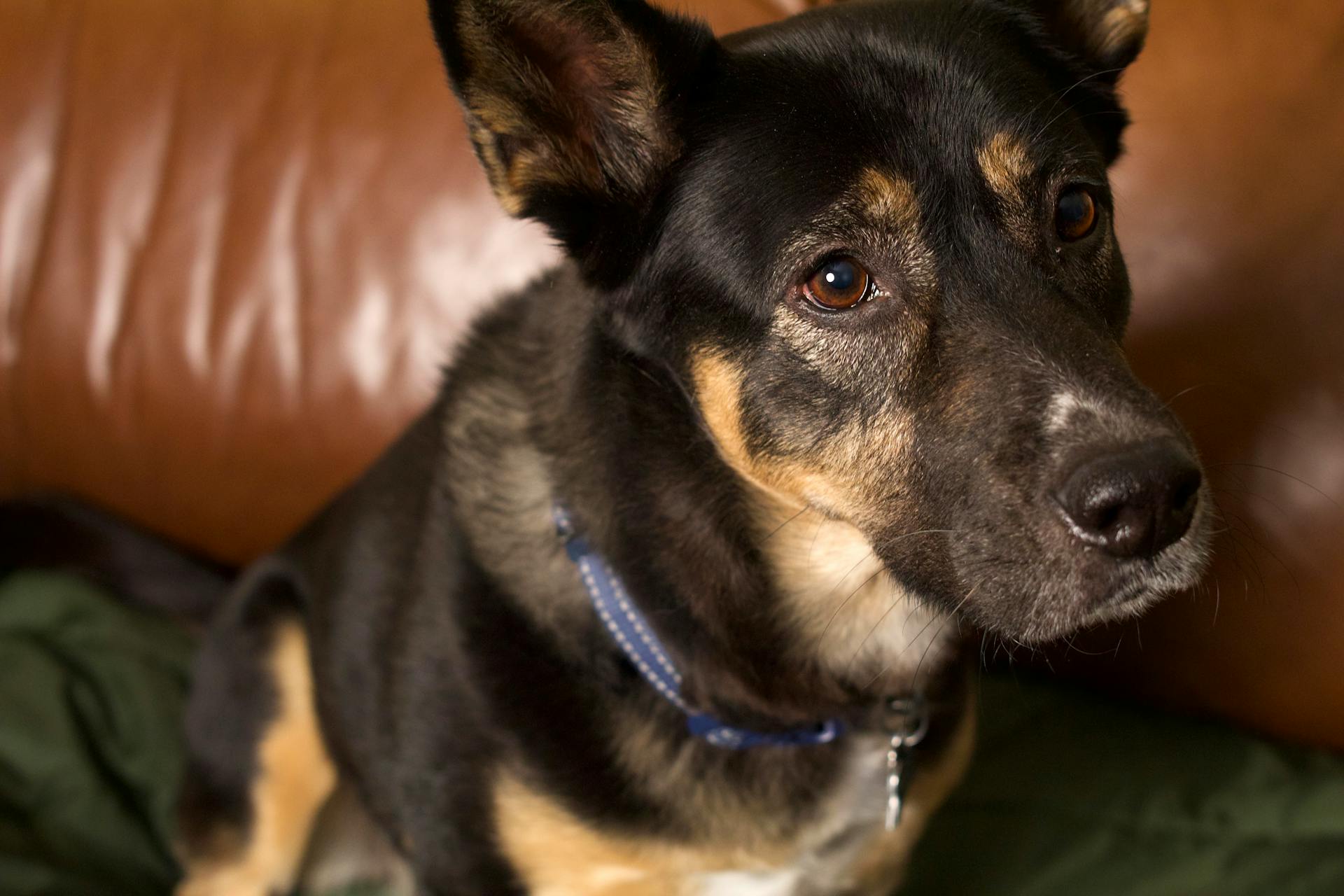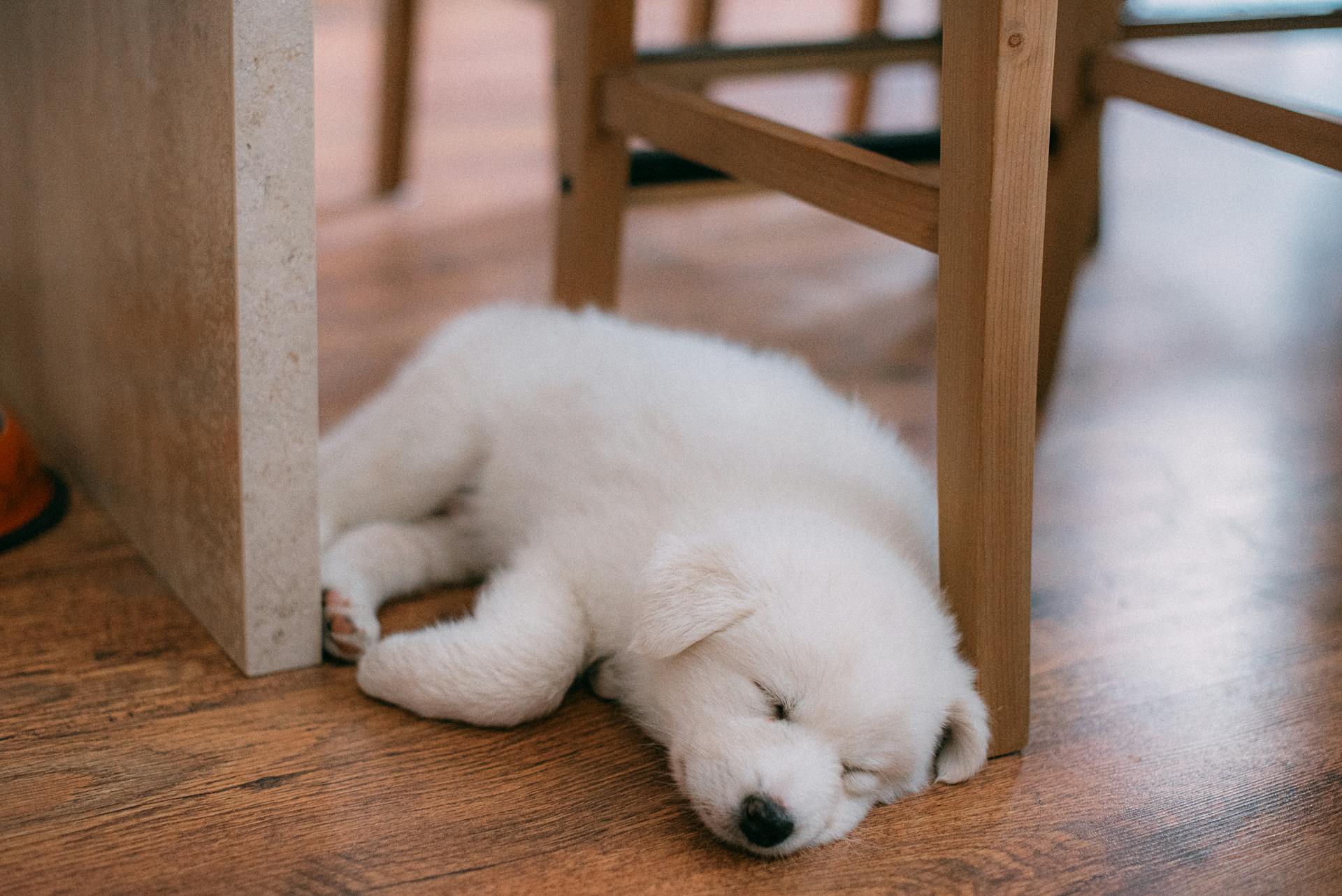
The Toy Shorkie is a crossbreed between a Yorkshire Terrier and a Shih Tzu, resulting in a small, affectionate companion.
They typically weigh between 7-15 pounds and stand between 6-9 inches tall.
Toy Shorkies are known for their friendly and outgoing personalities, making them great family pets.
They require regular grooming to prevent matting and tangling of their long, flowing coats.
What is a Shorkie?
A Shorkie is a crossbreed between a Shih Tzu and a Yorkshire Terrier, known for their adorable and affectionate nature.
Shorkies typically have a small to medium size, but their big personality makes up for it. They are often described as fearless, protective, and outgoing, making them a great companion for families who want a loving and lively pet.
Their coat type can vary, but most inherit the silky single coat of their Yorkshire Terrier parent, which is easy on allergies as it doesn't shed much. However, some Shorkies may take on the Shih Tzu's long, flowing double coat.
Shorkies are known for their bi-color coat markings, with common color combinations being black and tan, blue and gold, and black and white. They can also come in other colors like brindle, silver, liver, and red.
Their temperament is one of their best qualities - they bond very closely with their favorite humans and love spending time with them. However, they do struggle with being left alone for long periods of time, so they're not ideal for people with busy schedules.
Origin and History
The Shorkie is a mixed breed dog, specifically a cross between the Yorkshire Terrier and the Shih Tzu.
They originated in the United States and gained popularity over the past decade.
Shorkies are a relatively new breed, making it difficult to predict their temperament and appearance.
One thing is for sure, though - their ancestors didn't shed much, so Shorkies are also low-shedding breeds.
Intentional cross-breeding of the Yorkshire Terrier and Shih Tzu began in the early 2000s.
This was likely an attempt to create a more laidback version of the feisty Yorkshire Terrier.
Temperament and Personality
The toy Shorkie's temperament is a true reflection of their loving and playful nature. They make wonderful family pets and devoted lap dogs, thriving on attention and affection from their owners.
Shorkies are known to be sensitive and alert, quick to bark at any startling sound, which can be a challenge for their owners. Training and socialization in puppyhood are crucial to help them become less reactive.
Their small size can make them feel the need to stand up for themselves, so it's essential for owners to help them feel secure and teach them quieter methods of self-expression through consistent positive reinforcement training.
Shorkies love to interact with their human companions and are fiercely loyal, following their owners everywhere around the house. They're curious and entertaining, and they also love to spend time cuddling in their owners' laps.
These little dogs can't take being left alone for long, making them a great companion for seniors, too. They're moderately active, enjoying playtime, digging, and being vocal about things that interest them.
Recommended read: Dog Training with Toys
Shorkies are highly intelligent and can be trained for basic tricks, commands, and obedience with patience, consistency, and lots of treats and praise. However, they can be stubborn or overly enthusiastic when they get bored during training sessions.
Their affectionate nature makes them a joy to be around, showering their owners with love, attention, and loyalty. They love cuddles, belly rubs, and undivided attention from their favorite human.
Care and Grooming
Shorkies require daily brushing to prevent matting and tangling, especially if you want to keep their coat long.
Their coats should be brushed every day to prevent matting and tangling, but you can keep their hair short if you can't manage the task. Trimming their coat needs to happen regularly.
You should plan on taking your shorkie to the groomer every six weeks or so, and consider getting a puppy or "teddy bear" cut to reduce daily grooming time.
Here's a breakdown of the grooming needs of a shorkie:
Shorkies don't tolerate heat or cold well, so you'll need to tailor your activities to their needs. A couple short, daily walks will be enough to meet their needs, especially if they're provided with toys and games for mental stimulation when they're inside.
What Size Is It
Shorkies are relatively small dogs, typically reaching 11 inches in height and weighing between 7 and 16 pounds.
Their size can vary slightly depending on their parentage, with some Shorkies standing at around 7 to 8 inches tall if they inherit more traits from their Yorkshire terrier parent.
Female and male Shorkies are similar in size, so you can expect them to have a consistent size regardless of their sex.
Grooming Tips
Grooming your Shorkie requires regular attention to keep their coat in great condition. Daily brushing is a must to prevent matting and tangling, and a slicker brush is perfect for tackling problematic areas.
Shorkies can adapt to a range of lifestyles, but they do require frequent grooming. Brushing doesn't have to be done daily, but it should be done at least a few times per week to keep their coats smooth and soft.
To keep your Shorkie's coat looking its best, trim their nails when they grow too long, clean their ears regularly, and brush their teeth preferably daily. This will help prevent dental issues and keep their overall health in check.
See what others are reading: Shorkie Grooming
Shorkies have low-dander coats, but they still need regular grooming to stay knot- and tangle-free. Plan on taking your Shorkie to the groomer every six weeks or so for a professional trim.
Here's a quick guide to Shorkie grooming:
Remember, grooming is a great way to bond with your Shorkie, so make it a fun and positive experience for both of you.
Health and Longevity
Shorkies are generally a healthy breed, but they can be prone to certain health problems.
Shorkies that inherit the shorter snout from their Shih Tzu parent are at risk of BOAS, which can cause symptoms like labored breathing and wheezing.
Feeding a healthy, nutrient-rich diet and frequent meals can help prevent hypoglycemia, a common condition in Shorkies.
Regular vet checkups are crucial to prevent serious health problems and ensure your Shorkie lives a long, healthy life.
With proper care, Shorkies can live for 10 to 18 years, although their lifespan can vary depending on factors like diet, health, and lifestyle.
You might enjoy: Health Issues with Toy Poodles
Health Problems

Shorkies are generally a healthy breed, but like all dogs, they can be prone to certain health issues.
BOAS, or Brachycephalic Syndrome, is a condition that affects Shorkies with a shorter snout, causing symptoms like labored breathing and wheezing. This is treatable with surgery that opens up the airway.
Hip dysplasia is another common issue in Shorkies, which can be managed by not overexercising your pup.
Patellar luxation, a condition where the kneecap slips out of place, can also affect Shorkies.
Hypoglycemia, or low blood sugar, is a condition that can be prevented with a healthy, nutrient-rich diet and frequent meals.
How Long Do They Live?
Shorkies are known to live a relatively long life, with an average lifespan of 10 to 15 years. Factors such as diet, health, genetics, and lifestyle can affect their life expectancy.
Proper care is essential for a long and healthy life. Some Shorkies can live for up to 18 years with the right care and attention.
A balanced diet is crucial for maintaining good health. A well-fed Shorkie is more likely to live a long and happy life.
You might like: How Long Do Jack Russels Live
Cost and Adoption
Adopting a Shorkie can be a more affordable option, with adoption fees ranging from $50 to $250. This is a great way to give a loving home to a dog in need.
However, Shorkies aren't common in rescue shelters and tend to be adopted quickly, so you'll need to regularly call up shelters in your area to see if any have become available.
Shorkie puppies, on the other hand, can cost anywhere from $400 to $1,200 or more, depending on the breeder's reputation and the dog's health.
Are They Expensive?
Shorkie puppies can cost anywhere from $400 to $1,200 and more, with reputable breeders charging higher prices.
You'll want to factor in annual medical needs, which can range from $450 to $600 for shots, insurance, check-ups, and flea prevention.
Adding spaying or neutering can add at least $100 to that total.
Food, treats, toys, grooming necessities, and training can cost around $500 to $700 a year.
On average, you should expect to pay between $75 and $180 per month on expenses like food, vet checkups, toys, treats, and grooming trips.
Can You Adopt

Adoption is a much more affordable option than buying directly from a breeder, with most rescue shelters charging an adoption fee between $50 and $250.
You'll need to regularly call up rescue shelters in your area to inquire about available Shorkies, as they tend to be adopted quickly.
It's worth noting that Shorkies aren't common in rescue shelters, which is likely due to their adorable looks.
Training and Behavior
Training a toy Shorkie requires patience and persistence, as they can be stubborn and have a short attention span. They respond best to positive reinforcement and consistent training, breaking sessions into smaller 5 to 10-minute intervals.
To avoid separation anxiety, it's essential to socialize your Shorkie puppy early on and introduce them gradually to new places, people, other dogs, and pets. This will help them become confident and calm in new situations.
Shorkies are intelligent dogs and can learn complex commands, but they may require extra motivation with treats, praise, and rewards. With consistent training and positive reinforcement, they can become well-behaved and obedient companions.
Are Aggressive?
Shorkies are not born aggressive, but they can develop unfriendly behavior if they're not socialized properly. This is why early socialization is crucial for these adorable dogs.
Shorkie puppies tend to have a high prey drive, and they can be a bit territorial of their space and favorite humans, which can lead to aggression if not addressed. They need to be introduced gradually to new places, people, other dogs, cats, and small pets to avoid this behavior.
Training sessions should be kept short, around 10 to 15 minutes, twice a day, to keep Shorkie puppies engaged and focused. Positive reinforcement and rewards with delicious dog treats can help keep them cooperative and eager to learn.
Shorkies need to be trained early to handle some alone time, as they can suffer from separation anxiety and exhibit destructive behavior like excessive barking and chewing. Consistency and patience are key when training a Shorkie puppy.
Ease of Training
Training a Shorkie can be a bit of a challenge due to their stubborn nature.
Shorkies are intelligent dogs, but they can be resistant to training if they're not motivated correctly. They respond well to positive reinforcement, such as praise and high-value treats, which can help keep them engaged during training sessions.
Short training sessions are key when working with Shorkies. Aim for 5 to 10-minute sessions, twice a day, to keep them focused and prevent boredom. This will also help prevent them from becoming defensive or resistant to training.
Shorkies tend to get overly attached to their owners, which can lead to separation anxiety if not addressed early on. To avoid this, it's essential to establish a firm hand and use positive reinforcement during training.
Socialization is also crucial for Shorkies, especially during early puppyhood. Introducing them to new environments, people, and animals can help prevent territorial behavior and anxiety issues later on.
Shorkies are known to be vocal dogs, so it's essential to teach them the "quiet" command to minimize excessive barking. With patience, consistency, and positive reinforcement, you can help your Shorkie become a well-behaved and loving companion.
Living with a Shorkie
Living with a Shorkie can be a delightful experience, especially if you're willing to put in the effort to provide the right care and attention. Shorkies are generally great with kids, but it's essential to supervise interactions and ensure roughhousing is kept to a minimum.
To ensure a harmonious household, consider the following:
- Supervise Shorkies around children at all times.
- Train Shorkies daily to maintain a well-behaved companion.
- Provide plenty of exercise and mental stimulation to prevent boredom and destructive behavior.
Shorkies are adaptable and can thrive in apartments, but they do require regular exercise and training to prevent barking and other noise-related issues. With patience and proper care, your Shorkie can become a loving and loyal companion in even the smallest of spaces.
Good with Children
Shorkies get along well with children of all ages and make great playmates due to their sociable, outgoing nature.
However, since they have delicate bodies, it's best to supervise them around kids and keep roughhousing to a minimum.
Apartment Dogs
Living with a Shorkie in an apartment can be a great option, but it's essential to consider a few things. Shorkies are small companion dogs that thrive in apartment settings, but they do require regular exercise and mental stimulation.
On a similar theme: Are Cocker Spaniels Good Apartment Dogs
If you live in a thin-walled apartment block, you might want to think twice about bringing a Shorkie home. Their vocalness can be a problem, especially if you have noisy neighbors. However, with proper care, training, and exercise, your Shorkie can learn to be a quiet and well-behaved apartment dog.
One of the best things about Shorkies is their adaptability. They're loyal, affectionate, and can easily adjust to apartment living. However, they do need an owner who can be patient with them and train them daily.
Here are some key things to keep in mind when considering a Shorkie as an apartment dog:
- Shorkies require regular exercise and mental stimulation
- They can be vocal, especially in thin-walled apartment blocks
- Proper care, training, and exercise can help them be quiet and well-behaved
Overall, with the right care and attention, a Shorkie can make a wonderful apartment dog.
Frequently Asked Questions
How much does a teacup shorkie cost?
A teacup Shorkie's price typically ranges from $700 to $2,000, depending on the breeder and other factors. If you're interested in bringing one home, learn more about this adorable designer breed and its costs.
Is a shorkie a good dog?
Yes, Shorkies can make great companions for various households, including singles, couples, and families with older children. However, they do require close supervision during playtime with younger children to ensure everyone's safety.
Does a shorkie dog shed?
A Shorkie's shedding is minimal, but they require regular grooming to prevent matting and coat damage.
Featured Images: pexels.com


